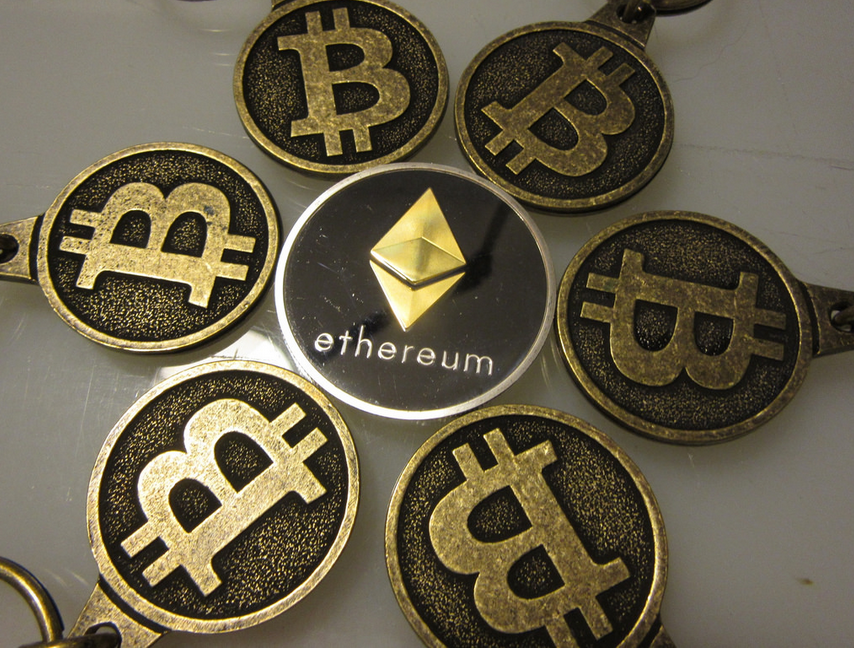A number of central banks and regulatory bodies have been quick to act and decide what to do with cryptocurrencies. Some have been calling for more oversight in the crypto world on an international level whereas others have been investigating owners and calling for outright bans. China, for example, has banned all trade involving cryptocurrencies, and with this in mind, the country has become a trailblazer in the fight against unregulated digital money.
Now, Denmark’s biggest bank has decided to join the march against all things crypto, and has banned all crypto assets from its trading platform. Not only that, but the bank is strongly recommending its customers to avoid dabbling in such assets at all.
Danske Bank is easily one of the most innovative financial institutions among the Nordic countries. However, the bank has decided not to participate in the commotion around cryptocurrencies.
Instead, Danske Bank has cautioned its customers to avoid experimenting with the technology. Bitcoin will not be allowed on the bank’s trading platform and even others, such as QTUM, Ripple and Ethereum will struggle to gain an entry.
The set of measures taken by Danske Bank may even cut deeper. The bank will focus on narrowing down the scope of investors who are looking for an angle to use financial instruments as derivatives for cryptocurrencies.
The bank issued its own report in which it specified its negativity towards cryptocurrencies. The bank simply does not find cryptocurrencies as a reliable investment tool, and the institution cautions its customers to be careful. However, it will not itself participate in any form of crypto-investment.
Danske Bank did many decent arguments that here at Cryptonewest have been citing. Even though in the hubbub of crypto-craze people have forgotten the self-evident truths, Danske Bank has had its priorities straight.
First off, cryptocurrencies answer to no master. No single central bank can guarantee anything about them. In one publication, the French newspaper Le Figaro published a study according to which one-in-three Bitcoin transactions were used for breaking the law, from financing human trafficking to drugs and money laundering.
The tally is quite bleak and Danske Bank has been concerned about being linked to any illegal activities and it is justified in doing so. However, may still deposit money that have come from investment in cryptocurrencies if the money have been regulated and if they have complied with anti-money laundering legislation, thus giving the funds credence.
Just to put the bank’s forward-thinking in perspective, in 2013 the bank launched its MobilePay initiative, which is a phone-based payment app, allowing customers to settle bills through their phones. It has quickly gained traction to be one of the most popular banking apps in both Finland and Denmark.
However, Danske Bank did not act alone and it brought a number of reliable and trustworthy partners from the region in order to facilitate the transfer of funds and make it so that everyone can trade with money and transfer them as safely and easily as they would transfer a simple message from a friend.
With this in mind, Danske Bank is one of the most reliable partners and companies in the region to offer all sorts of solutions. The stance on cryptocurrencies may seem hard, but it is also fair. The goal here is to guarantee that customers and institutions are protected, and the bank has a point.
If every commercial bank out in the world begins to accept and facilitate payments in cryptocurrencies, there would be no stopping individuals and criminal organisations to advance their own ends, whether they are nefarious or simply cupidnous.
With the appearance of more established institutions that have decided to take a firm stance against the illicit trading of such assets, which may not only damage their reputation as reliable facilitators of honest business but also undermine the global economy.
Danske Bank’s decision could serve as example to others how to treat cryptocurrencies and how to demand that everyone is put on equal footing. This is the basis for having a meaningful relationship in the crypto world and making for a stable future where the system is not overshadowed by uncertainty stemming from governmental inability to address common issues that have been so far avoided in the world of cryptocurrencies.
Danske bank’s example is laudable and it deserves attention. Hopefully, other banks and financial institutions, let alone governments, will muster up the courage to face the facts and start acting.
Mar 28, 2018
Danske Bank bans cryptocurrencies en masse



Comments (No)